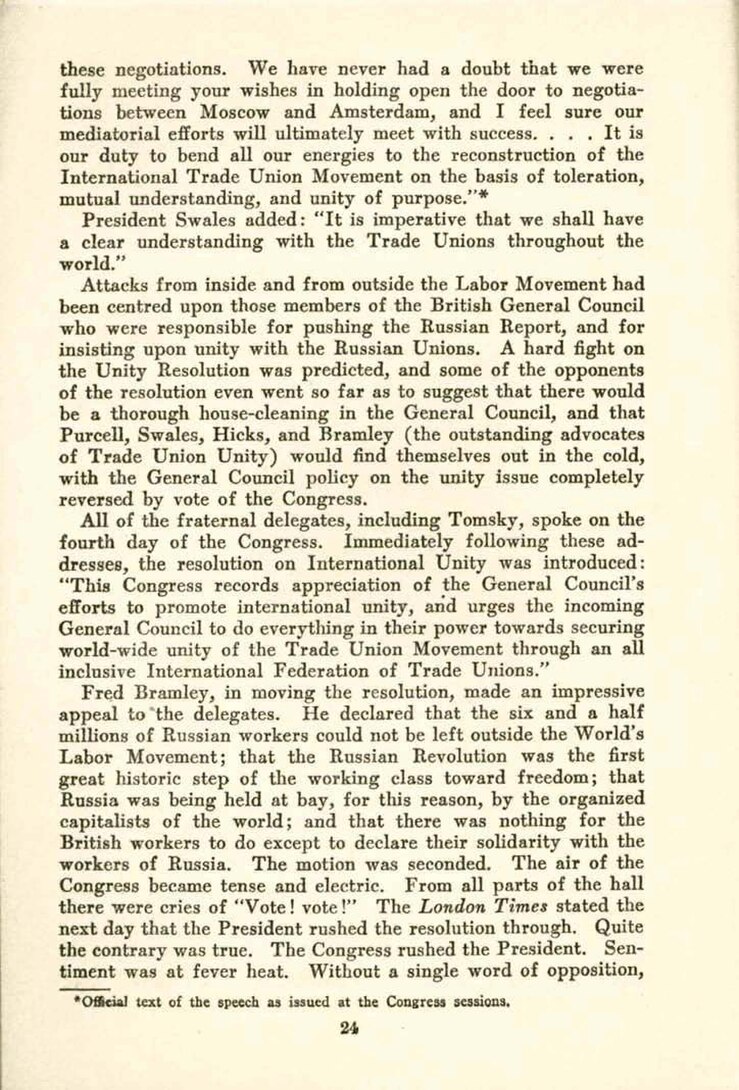these negotiations. We have never had a doubt that we were fully meeting your wishes in holding open the door to negotiations between Moscow and Amsterdam, and I feel sure our mediatorial efforts will ultimately meet with success. … It is our duty to bend all our energies to the reconstruction of the International Trade Union Movement on the basis of toleration, mutual understanding, and unity of purpose."[1]
President Swales added: "It is imperative that we shall have a clear understanding with the Trade Unions throughout the world."
Attacks from inside and from outside the Labor Movement had been centred upon those members of the British General Council who were responsible for pushing the Russian Report, and for insisting upon unity with the Russian Unions. A hard fight on the Unity Resolution was predicted, and some of the opponents of the resolution even went so far as to suggest that there would be a thorough house-cleaning in the General Council, and that Purcell, Swales, Hicks, and Bramley (the outstanding advocates of Trade Union Unity) would find themselves out in the cold, with the General Council policy on the unity issue completely reversed by vote of the Congress.
All of the fraternal delegates, including Tomsky, spoke on the fourth day of the Congress. Immediately following these addresses, the resolution on International Unity was introduced: "This Congress records appreciation of the General Council's efforts to promote international unity, and urges the incoming General Council to do everything in their power towards securing world-wide unity of the Trade Union Movement through an all inclusive International Federation of Trade Unions."
Fred Bramley, in moving the resolution, made an impressive appeal to the delegates. He declared that the six and a half millions of Russian workers could not be left outside the World's Labor Movement; that the Russian Revolution was the first great historic step of the working class toward freedom; that Russia was being held at bay, for this reason, by the organized capitalists of the world; and that there was nothing for the British workers to do except to declare their solidarity with the workers of Russia. The motion was seconded. The air of the Congress became tense and electric. From all parts of the hall there were cries of "Vote! vote!" The London Times stated the next day that the President rushed the resolution through. Quite the contrary was true. The Congress rushed the President. Sentiment was at fever heat. Without a single word of opposition,
- ↑ Official text of the speech as issued at the Congress sessions.
24
